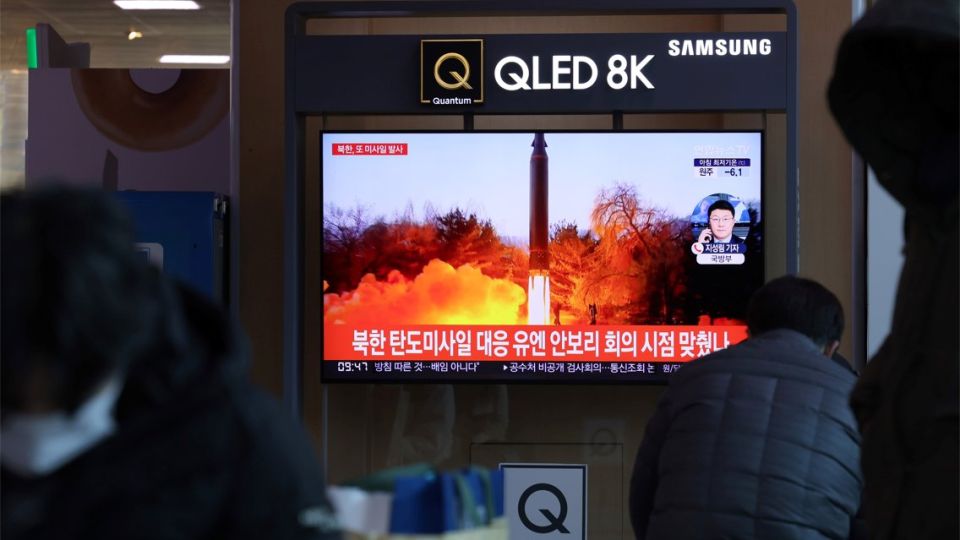January 12, 2022
SEOUL – North Korea’s recent missile launch, which would previously have been a variable in a South Korean presidential election, will have little effect on the upcoming election, as provocations become routine and receive less attention from the public and candidates, experts say.
“North Korea’s missile launch is unlikely to have a direct impact on the presidential election,” said Hong Min, a senior researcher at the Korea Institute for National Unification’s North Korea research division. “I think the indirect impact is also very minimal.”
He said when looking at public opinion and media trends, North Korea-related issues are not having much of an impact on the presidential election recently.
In September last year, North Korea fired two short-range ballistic missiles into the East Sea. But little public opinion or media linked North Korea to the presidential election. Major candidates from neither the ruling nor main opposition party released a statement over the provocation.
The North again fired two missiles this month, but the situation did not change much. Until Tuesday morning, key candidates Lee Jae-myung and Yoon Suk-yeol remained silent over the issue. Only when asked by a foreign reporter in the afternoon did Yoon say that if there are signs that a nuclear-loaded missile is fired, there is no other recourse but to take a preemptive strike.
Over the course of the election campaign, the North issue itself has been put on the back burner due to more pressing issues like the coronavirus, economy and real estate.
This is in contrast to a decade ago, when the North Korean issue had been a significant variable in presidential elections.
In December 2012, when the North launched a long-range rocket ahead of the presidential election, both the ruling and opposition candidates were vocal, saying it escalated tensions on the Korean Peninsula. Park Geun-hye, then the candidate for the ruling conservative party, gathered hawks stressing her “thorough security view,” while Moon Jae-in, then candidate for the liberal-leaning main opposition, sought to exude a strong image through his former military career in South Korea’s special forces.
From the perspective of whether the North has any intention to affect the election now, “I don’t think it’s big,” Hong said. “In terms of the benefits that North Korea can take (in the presidential election) by launching missiles, it is not large. So the connection with the presidential election is not that high.”
Pyongyang had no political remarks or external messages when firing the two missiles.
Regarding the suspected ballistic missile launched by North Korea, President Moon Jae-in said, “I am concerned about North Korea’s consecutive missile test launches ahead of the presidential election.”
Moon told each ministry to take necessary measures so that inter-Korean relations are no longer tense and so that people are not anxious.
The North’s priority for the missile test is to boost its defense capabilities as planned, regardless of the external environment, but it is not that the regime does not consider South Korea’s presidential election, said Park Won-gon, a professor in the department of North Korean studies at Ewha Womans University.
“North Korea is refraining from taking actions that could escalate tensions on the Korean Peninsula as much as possible,” he said. “This is because if tensions are created to the extent of mentioning the war crisis on the Korean Peninsula, it will be disadvantageous to the ruling party,” which has a less harsh stance on the North compared to the main opposition People Power Party.
“If that happens, the public may blame the Moon Jae-in government’s past five years of efforts toward the North and the criticism could negatively affect ruling presidential candidate Lee Jae-myung,” he said. “That is not what the North wants.”


